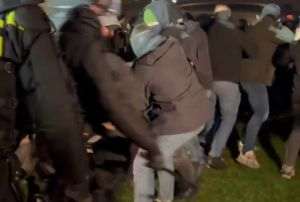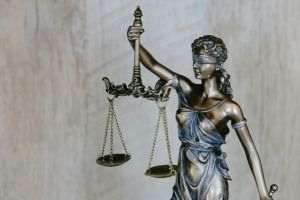After it's become obvious how the British are acting all avoidant, after the Brexit, now would be important to read the reactions of the other "partner" in the divorce, the European Union. How will it react, what stance will it take in the negotiation and what political attitude will prevail in the resolution of the complex enough problems which the exit trajectory, as well as its potential blocking raise?
The oh-so wide and colorful world of "pundits" who put out their own "ideas", or who borrow them by listening at the doors of the offices were policy is being made, have brought up an issue that is oh so lovely to some, that of shake-ups!!! They have pretentiously called it, "the domino effect". After the British exit, "when it rains, it pours", according to them! Everyone is going to have their own referendum, the French, and the Dutch and the Italians and the Poles and whoever else there is, willy-nilly and they are all going to ask to leave the EU!!! And best hold on to your hat!! Looking at this pathetic picture, it is impossible not to admire Caţavencu (a character in a Romanian play): "...respect for any opinion!..." But, having people come up with obsolete notions, with rusty opinions, and always worrying you with Europe, with shakeups, with subversive theories...that just won't work anymore...That kind of opinions can't be respected, let me tell you... Not only is the "domino effect" a stupid made-up notion just so some people can fill their pages with "political commentary", quite the contrary! The most likely effect on the political and institutional "body" called EU, following a serious threat of functional turmoil, is "the closing of the ranks" and resolving at least a some of the issues which have long been known, but have been swept under the rug, or postponed from one day to the next, from one decade to the next, because the politicians, the ones who should be making the strategic decisions, are far too concerned with their local decisions, or just don't want the headache of dealing with issues that do not have on hand resolutions that are easily available and are easily acceptable for their electorate.
Based on the classic principle of Lord Shackleton "If you can't fix it, feature it!", or even worse, based on the just as notorious adaptation of the Great Unknown: "If you can't fix it, fake it!" Faced with the threat of really bungling it, the European Union will have to resolve at least some of its notorious problems, which make it so unattractive in the eyes of millions of people, who do however, benefit, substantially, even though indirectly, from the functioning of its mechanisms, even in the context of exorbitant costs and chronic institutional and democratic shortcomings. Easier said than done!
The European Union resembles to a disturbing degree that unfortunate two headed dragon, that can't agree on any decision, or action to take: one head is the government factor and it is represented by the leaders of the member countries united in a Council, or who negotiate, discuss and even decide before getting to the official meetings; the other head is made up of the big bureaucracy in Brussels, whose top representative is the European Commission.
The first reactions to the Brexit??
The government "head", through the voice of Mrs. Merkel used a very "soft" tone, has hinted, that the issue should not be approached hastily, that no one should lift the stone to throw it, that the essence of the Brexit exercise, in an almost biblical sense, shouldn't be the "death of the sinner", but their redemption, if possible, and if not, at least maintaining a relationship that is as cordial as possible, and of course, mutually beneficial. Roughly speaking, Germany has commercial exchanges of approximately 60 billion Euros, in direct commercial exchanges with the United Kingdom alone!!! To avoid making it look like it was siding with the British, by in fact defending its own interests, it changed its tune at the meeting with France and Italy and went with a sterner statement, which doesn't matter anyway: we are not going to negotiate anything with the British, neither formally, nor informally, until they submit their official request to exit the EU and they'd better hurry!!!
The other head of the dragon breathed fire! Even through the "nostrils" of the President of the Commission, Claude Junker, the minute the results of the referendum in the UK were announced. The warlike message was: when it comes to the exit process, no one should expect a rain of rose petals. It will be full of thorns, unpleasant and very costly. This message has two goals. One is the attempt of the bureaucracy in Brussels to nip in the bud any other potential deserters who would think that the exit from the EU might a be a pleasant walk in the park! No it is not, it is a ride through the beast infested forest! And the exit leads into a precipice! The second target is the other head of the dragon, the governmental one. It should forget the soft approaches and do what they have to do, meaning breathe fire and burn things. Or else, it runs the risk of having the world think they are dinosaurs and just like dinosaurs evolved into birds, they will turn into chicken over time, like dinosaurs devolved into birds, that anybody can just place in a pot and boil!
The argument between the two heads of the dragon called the EU is the main hurdle to the transformations and reforms that the ones who have been hit by the wave of the Brexit vote. Aside from some cosmetic measures, if they even do get taken, most likely the EU will forget the need to bring up again a constitutional project that would end the institutional aberrations, the massive democratic shortcomings, the huge waste of funds and the inability to decide precisely on the most serious issues that need to be resolved, from the energy policies, to security and financial and budgetary ones, all the way to those that concern the control of individual movement in the EU space, whether it is the control of borders, legal or illegal immigration or professional mobility caused by the dynamic of the workforce.
There is no doubt, the EU should learn something, with both of its heads: "Or first of all, history teaches us that a people that doesn't move forwards is standing still, in fact it is going backwards, that the law of progress is like that, the quicker you move, the farther you get." But I am afraid that not even one of the heads of the EU will get to that wisdom on its own, and if they do, they'll fail to agree on how to use it. Just like the Brits who one day found themselves that not only are they not going forward, but they're actually going backwards!!!




























































